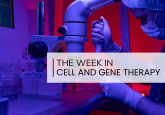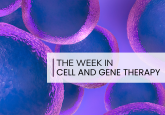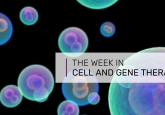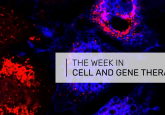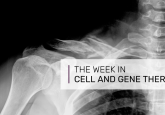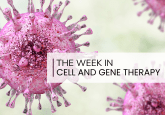Cell therapy weekly: Positive data from Phase I/II trial of investigational gene therapy for HIV
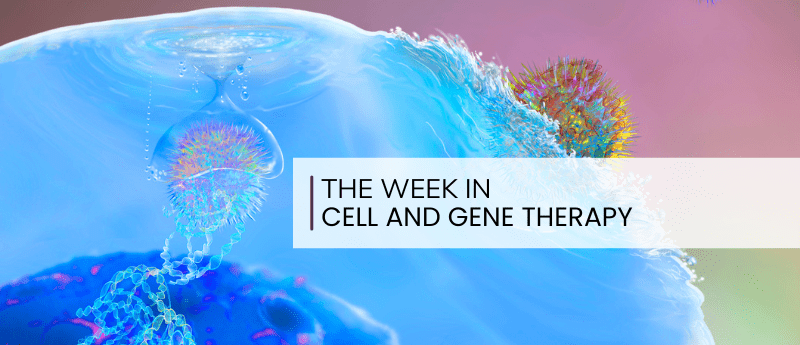
This week: AGC Biologics (WA, USA) signed a service agreement to support the production of Medigene’s (Planegg, Germany) TCR-T cell therapy for solid cancers; Excision BioTherapeutics (CA, USA) presented positive safety data from the first dose cohort in its first-in-human Phase I/II trial of EBT-101 and Dyno Therapeutics (MA, USA) unveiled its Dyno eCap 1™ capsid product for ocular gene therapy.
The news highlights:
- AGC Biologics signs service agreement with Medigene to support next-gen TCR-T cell cancer therapy
- Positive interim data from Phase I/II trial of investigational gene therapy for HIV
- AI-optimized AAV capsid for ocular gene therapy launched
AGC Biologics signs service agreement with Medigene to support next-gen TCR-T cell cancer therapy
AGC Biologics has announced a service agreement with Medigene to provide autologous production for Medigene’s next-generation TCR-T cell therapy candidate designed to treat solid cancers. This collaboration aims to support Medigene’s Investigational New Drug application and clinical trials.
“This is a critical first step in ensuring that our lead product candidate MDG1015, a third-generation TCR-T therapy combining our optimal affinity TCR targeting NY-ESO-1/LAGE-1a with our PD1-41BB costimulatory switch protein, is ready for GMP clinical evaluation,” said Selwyn Ho, CEO of Medigene. “We are delighted to partner with AGC Biologics as we advance towards MDG1015’s phase I clinical milestone and look forward to its further development and delivering a potentially best-in-class, differentiated TCR-T therapy for patients with solid tumors.”
Positive interim data from Phase I/II trial of investigational gene therapy for HIV
At the European Society of Gene and Cell Therapy’s 30th annual congress (24-27 October 2023; Brussels, Belgium), Excision BioTherapeutics presented positive safety data from the first dose cohort in its first-in-human Phase I/II trial of EBT-101. EBT-101 is an in vivo CRISPR-based therapeutic designed to treat HIV-1 by targeting latently integrated proviral HIV DNA. It utilizes an AAV vector to deliver a CRISPR nuclease and two gRNAs. In preclinical studies, EBT-101 has demonstrated the ability to target various sites in the HIV genome, resulting in the removal of substantial portions of HIV proviral DNA, effectively disabling HIV replication.
William Kennedy, Senior Vice President of Clinical Development at Excision, commented, “Establishing the safety and biodistribution of EBT-101 is an important first step in the clinical program. Treatment with EBT-101 resulted in no serious adverse events or dose-limiting toxicities in the first three participants, and all reported adverse events were mild and reversible. Excision was also able to demonstrate positive biodistribution of the product candidate at this dose level. These initial observations provide important clinical data that support the advancement of the EBT-101-001 trial to the next dosing cohort.”
AI-optimized AAV capsid for ocular gene therapy launched
Dyno Therapeutics, a company specializing in artificial intelligence-driven AAV capsid engineering for genetic medicine, has unveiled its Dyno eCap 1 capsid product. According to key data, following intravitreal delivery in non-human primates, this vector efficiently transduces all major cell types in the retina, including rod cells, bipolar cells and retinal ganglion cells and exhibits an 80-fold better transduction efficiency than AAV2.
“Enabling effective delivery to all cells in the eye, and in particular across the entire retina, is crucial to enable gene therapies to treat ocular diseases such as wet age-related macular degeneration, geographic atrophy, and retinitis pigmentosa,” said Adrian Veres, Chief Scientific Officer and co-founder of Dyno. “The Dyno eCap 1 vector is accelerating the next generation of ocular gene therapies for both genetic and non-genetic diseases, joining our growing suite of leading-edge capsids ready to help our partners bring the world’s best gene therapies into the clinic to help more patients.”
You might also like:
 3D printed stem cells offer hope for repairing brain injuries
3D printed stem cells offer hope for repairing brain injuries
Researchers have developed a method that offers the potential for customized treatments for brain injuries by showcasing the ability to 3D print stem cells to replicate the intricate structure of the cerebral cortex.
 Universal stem-cell biobanks: getting closer to the castle in the sky?
Universal stem-cell biobanks: getting closer to the castle in the sky?
A report has revealed the number of distinct stem-cell lines required to provide adequate representation of Brazil’s genetically diverse population.
